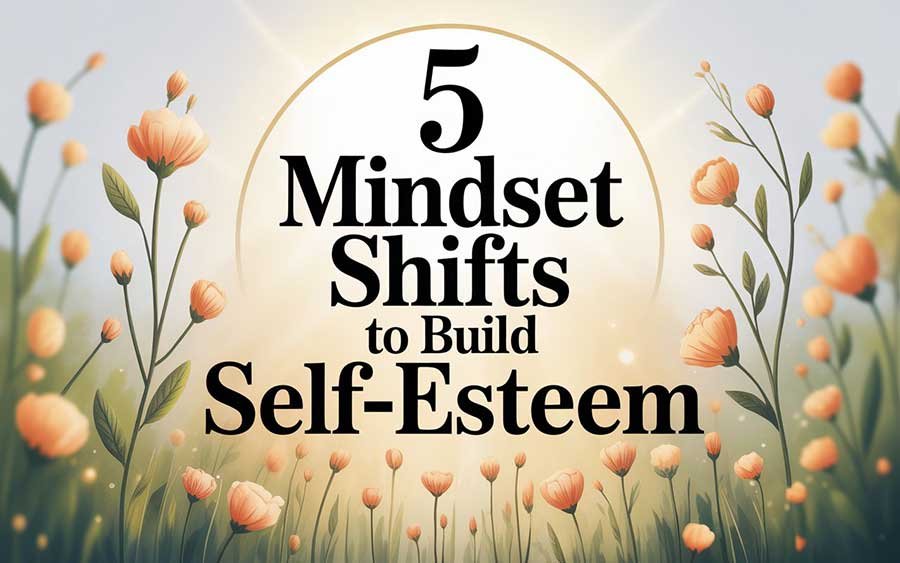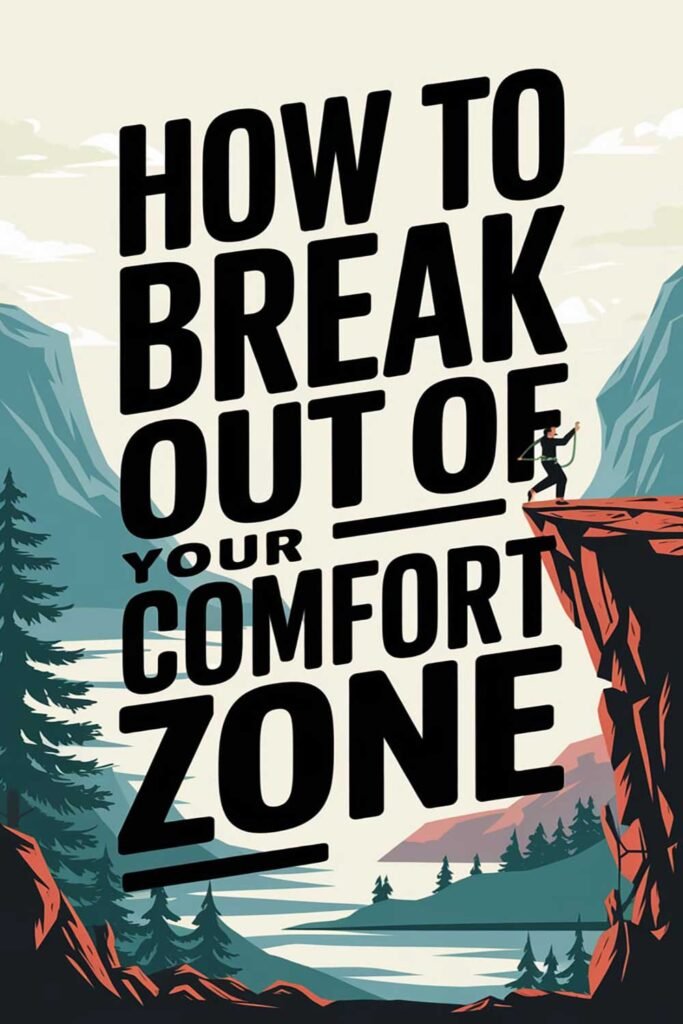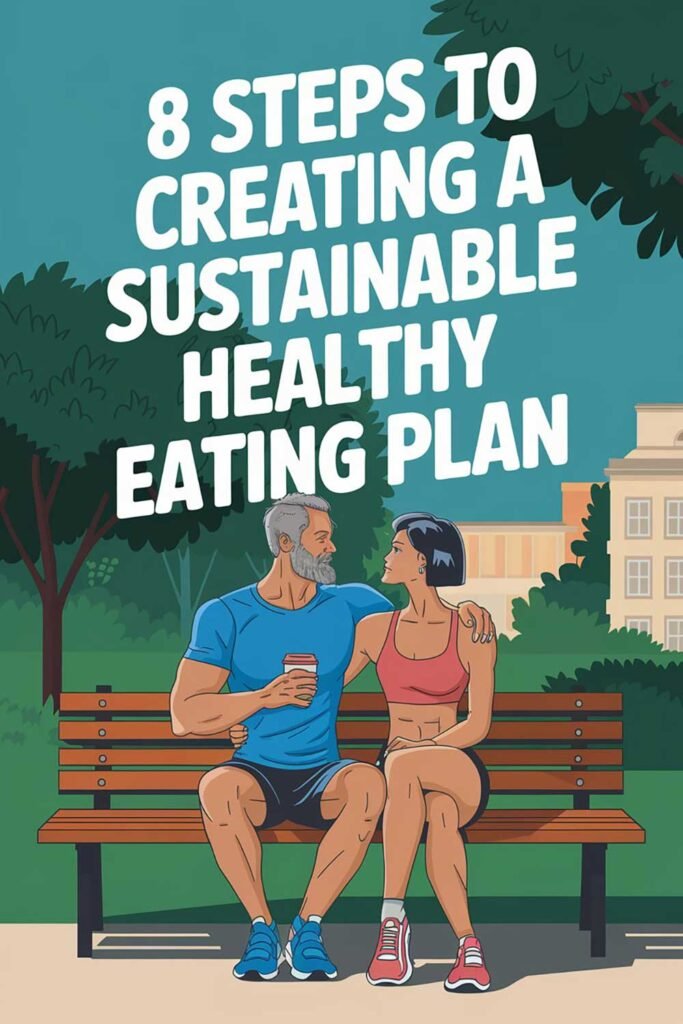
Unlocking Your Inner Power: 5 Mindset Shifts to Build Unshakeable Self-Esteem
Have you ever found yourself constantly second-guessing your decisions, holding back your true opinions, or feeling a pang of inadequacy when scrolling through social media? For countless individuals, low self-esteem is an invisible burden, a quiet but persistent whisper of “you’re not good enough” that undermines confidence, stifles potential, and keeps them playing small in life. It manifests as a fear of failure, a relentless pursuit of external approval, crippling self-doubt, and an inability to truly embrace their unique worth. This isn’t just an unpleasant emotion; it’s a profound barrier to living a life of authenticity, purpose, and genuine fulfillment.

I know this feeling intimately. For years, my sense of self-worth felt like a fragile balloon, constantly inflated or deflated by the opinions, reactions, and approval of others. A compliment could send me soaring; a perceived slight or criticism would send me spiraling into insecurity. I’d perform in relationships, present a carefully curated image online, and avoid any risk that might lead to disapproval or judgment. This constant striving for external affirmation was utterly exhausting. It left me feeling inauthentic, anxious, and perpetually insecure, because my worth was never truly mine; it was always conditional, granted by someone else. I yearned for inner peace and a genuine belief in myself, but I didn’t know how to break free from this insidious cycle of external dependence.
But here’s the profound, liberating truth I discovered: self-esteem isn’t a fixed trait you’re either born with or not; it’s a dynamic state, a mindset, and a skill that can be built and strengthened through conscious effort. It’s about shifting your internal landscape, challenging ingrained beliefs, and systematically cultivating a foundation of intrinsic value that stands firm, no matter what the world throws at you. It’s about becoming your own fiercest advocate and most trusted source of approval, replacing self-criticism with self-compassion, and external seeking with internal knowing.
This comprehensive guide is designed to be your ultimate blueprint for cultivating unshakeable self-esteem. We’ll explore the subtle ways low self-esteem takes root, uncover its damaging effects, and provide 5 powerful mindset shifts that will transform your ability to embrace authenticity, build genuine self-worth, and live a life driven by inner conviction, not outward approval. Get ready to embark on a journey that will not only silence the inner critic but empower you to live a life fueled by profound confidence, purpose, and unshakeable self-belief.
The Invisible Cage: What Low Self-Esteem Costs Us (and Why Shifting Matters)
Low self-esteem is far more than just “feeling bad about yourself.” It’s an invisible cage that limits your potential and diminishes your quality of life in myriad ways:
- Self-Doubt & Procrastination: A pervasive belief in your own inadequacy leads to second-guessing every decision, delaying action, and missing opportunities. You constantly question your abilities, leading to inaction.
- People-Pleasing & Inauthenticity: A desperate need for approval drives you to constantly adapt your opinions, behaviors, and even appearance to fit in or gain acceptance. You become a chameleon, losing touch with your true self, which leads to internal conflict and resentment.
- Fear of Failure & Risk Aversion: The fear of making mistakes or falling short becomes paralyzing, preventing you from trying new things, taking on challenges, or pursuing ambitious goals. You stay in your comfort zone, even if it’s unfulfilling.
- Comparison & Jealousy: You constantly measure yourself against others, especially curated images on social media, always finding yourself lacking. This fuels envy and dissatisfaction, making genuine happiness difficult to achieve.
- Unhealthy Relationships: Low self-esteem can lead to codependency, accepting mistreatment, or an inability to set healthy boundaries. You might attract partners who reinforce your insecurities, or push away healthy relationships because you don’t believe you deserve them.
- Anxiety & Stress: The relentless pursuit of external affirmation and the fear of judgment create chronic worry, tension, and mental exhaustion. Every interaction becomes a performance.
- Career Stagnation: You might hesitate to speak up in meetings, negotiate a raise, or apply for promotions, convinced you’re not worthy, leading to missed career advancement.
- Lack of Fulfillment: Despite accomplishments, a deep emptiness lingers because your actions are driven by external validation rather than internal purpose. You’re never truly satisfied.
Building genuine self-esteem is not just about feeling better; it’s about reclaiming your autonomy, your potential, and your capacity for true joy and authentic living. It’s the foundational shift that empowers you to transform into the person you truly aspire to be.
Your Self-Esteem Blueprint: 5 Mindset Shifts for Unshakeable Self-Worth
These shifts are powerful, actionable changes in how you perceive yourself and interact with the world. They require consistent practice, but their cumulative effect is profound.
Shift 1: From External Validation to Internal Approval (Your Core Worth)
This is the bedrock of genuine self-esteem: understanding that your worth is inherent, non-negotiable, and does not depend on anyone else’s opinion, praise, or approval.
- The Shift: Stop treating external approval as a primary need. Recognize that while compliments are nice, your true value comes from within.
- How to Practice:
- Identify Your Validation “Hits”: Notice when you seek external praise (e.g., compulsive social media checking, over-explaining decisions, fishing for compliments).
- Acknowledge Your Efforts & Intentions: Consciously recognize your own hard work, integrity, and good intentions, even if no one else notices. Pat yourself on the back for small efforts.
- Celebrate Internal Wins: Acknowledge personal victories that no one else sees – sticking to a difficult boundary, overcoming procrastination, or pushing through discomfort.
- Journal Your Self-Validation: Write down specific instances where you showed up for yourself, acted with integrity, or achieved something, no matter how small. This builds a robust internal “evidence file” for your worth.
- Why it Builds Self-Esteem: This shift liberates you from the exhausting pursuit of external affirmation, which is a bottomless well. When your worth comes from within, it becomes unshakeable. You become the author of your own narrative, rather than waiting for others to write it. This builds a powerful foundation for connecting with others from a place of wholeness, fostering building meaningful connections that are based on authenticity, not desperate need.
- Real-Life Example: Sarah, a talented artist, used to post her work online and immediately obsess over likes and comments. If a post didn’t get much engagement, she’d feel her art was worthless. She shifted to focusing on the joy of creation and her own satisfaction with the piece. “Now, I create for myself first,” she shared. “When I finish a piece, I look at it and internally say, ‘I’m proud of this.’ If others like it, that’s a bonus, but my core worth as an artist doesn’t depend on it. It’s incredibly freeing and allows me to create more genuinely.”
Shift 2: From Perfectionism to Progress (Embracing Imperfection)
Low self-esteem often thrives on perfectionism – the belief that you must be flawless to be worthy. This leads to paralysis, procrastination, and self-sabotage.
- The Shift: Understand that perfection is an illusion and an enemy of progress. Embrace imperfection as a natural and necessary part of growth and learning. Focus on consistent progress, not flawless execution.
- How to Practice:
- Redefine “Failure” as “Feedback”: View mistakes not as proof of inadequacy, but as valuable learning opportunities. Ask: “What can I learn from this?” rather than “Why am I so bad?”
- Embrace the “Messy Middle”: Understand that the process of learning and creating is often messy and uncomfortable. Lean into it.
- Celebrate Small Steps: Break down big goals into tiny, manageable actions, and celebrate every single step forward.
- Practice Self-Compassion for Mistakes: When you make a mistake, treat yourself with kindness and understanding, just as you would a friend.
- Why it Builds Self-Esteem: This shift liberates you from the paralyzing fear of not being good enough. It allows you to take risks, learn, and grow without the crushing weight of perfectionism. You develop resilience and trust in your ability to adapt and improve, rather than being defined by perceived flaws.
- Real-Life Example: Mark, an aspiring entrepreneur, was terrified to launch his business website because it wasn’t “perfect.” He spent months tweaking it, procrastinating, and agonizing over minor details. He shifted his mindset to “progress over perfection.” He launched a “minimal viable product” website and committed to improving it weekly. “It was terrifying,” he admitted. “But seeing it live, even with small imperfections, built so much confidence. I learned more from putting it out there than from endless tweaking. Now I focus on iterating, not perfecting from day one.”
Shift 3: From Comparison to Cultivation (Your Unique Journey)
Social media has amplified our natural tendency to compare ourselves to others, leading to a relentless feeling of inadequacy and robbing us of our joy.
- The Shift: Recognize that comparison is a thief of joy and a direct attack on self-esteem. Shift your focus from what others have or appear to be, to cultivating your own unique strengths, talents, and path.
- How to Practice:
- Limit Comparison Triggers: Consciously reduce time on social media platforms that trigger comparison. Curate your feed to follow accounts that inspire, rather than deflate.
- Focus Inward (Self-Awareness): Redirect your energy to understanding your own values, strengths, and unique journey. Spend time reflecting on your own progress and potential. This involves a deep dive into self-understanding, a process powerfully supported by cultivating your mental health and emotional well-being.
- Celebrate Others Authentically: Practice genuine admiration and appreciation for others’ successes without letting it diminish your own worth.
- Remind Yourself of Your Unique Path: Understand that everyone has different struggles and different timelines. Your path is meant for you.
- Why it Builds Self-Esteem: This shift liberates you from the endless, unwinnable race of comparison. It allows you to appreciate your own unique worth, celebrate your individual journey, and cultivate your strengths without the constant feeling of falling short. It fosters a sense of contentment and self-acceptance. It also significantly reduces relationship issues, particularly in the context of overcoming jealousy in relationships, as many instances of jealousy stem from comparison and insecurity rather than true threats.
- Real-Life Example: Jessica constantly compared her career trajectory to her peers on LinkedIn, feeling like she wasn’t achieving enough. She unfollowed accounts that triggered this, and instead focused on her own daily growth activities. She also started a “wins” journal where she listed her personal accomplishments. “It was hard to break the habit of checking LinkedIn for comparison,” she said, “but when I did, my anxiety plummeted. I realized I was focusing on my own progress, not someone else’s highlight reel, and that made me feel so much more secure in my own worth.”
Shift 4: From People-Pleasing to Authentic Boundaries (Self-Respect in Action)
Low self-esteem often manifests as an inability to say “no,” leading to constant people-pleasing and a chronic feeling of being overwhelmed and resentful.
- The Shift: Understand that setting boundaries is an act of self-respect, not selfishness. Your needs and time are just as valid as anyone else’s.
- How to Practice:
- Identify Your “Yes” Triggers: When do you say “yes” when you mean “no”? (e.g., fear of disapproval, fear of missing out, feeling obligated).
- Practice Saying “No” (Gracefully): Start with small “no’s” to low-stakes requests. Use phrases like: “I appreciate you thinking of me, but I can’t take that on right now,” or “I’m not able to commit to that.”
- Articulate Your Needs: Learn to calmly and clearly communicate your needs, limits, and expectations in relationships. This is a foundational skill for self-respect and healthy connections, and you can find comprehensive guidance on how to communicate your needs effectively.
- Understand the Consequence of Not Setting Boundaries: The cost is often resentment, burnout, and a feeling of being taken advantage of.
- Why it Builds Self-Esteem: Each time you set an authentic boundary, you send a powerful message to yourself (and others) that your time, energy, and needs are valuable. It reinforces your self-respect and allows you to live more authentically, rather than performing for others’ approval. This vital skill is also deeply explored within strategies for healthy boundaries with friends and family, emphasizing its importance for all relationships.
- Real-Life Example: Tom, a kind and helpful person, was constantly overwhelmed by taking on extra tasks at work and favors for friends, often sacrificing his own well-being. He learned to say “no” to requests that didn’t align with his priorities, using a simple script. “It felt terrifying at first,” he admitted. “I feared people would be angry or think I was unhelpful. But surprisingly, most people respected it, and I gained so much time and energy back. More importantly, I started respecting myself more.”
Shift 5: From Self-Criticism to Self-Compassion (Your Inner Advocate)
Low self-esteem is often fueled by a harsh, relentless inner critic that constantly judges, blames, and finds fault. This voice is corrosive and deeply damaging.
- The Shift: Consciously choose to replace your inner critic with an inner advocate – a voice of kindness, understanding, and encouragement. Treat yourself with the same compassion you would offer a dear friend.
- How to Practice:
- Identify Your Inner Critic’s Voice: Notice the specific phrases your inner critic uses (e.g., “You’re so stupid,” “You always mess up,” “No one cares what you think”).
- Challenge the Voice: Is it 100% true? Is it helpful? What’s the more compassionate interpretation?
- Practice Self-Talk as if to a Friend: If your best friend made a mistake, would you call them “stupid” or encourage them to learn? Offer yourself the same kindness.
- Embrace Imperfection: Understand that making mistakes is part of being human. Learn from them without self-flagellation.
- Mindful Self-Compassion Breaks: When feeling overwhelmed, pause, put a hand over your heart, and offer yourself a few kind words.
- Why it Builds Self-Esteem: Self-compassion is a powerful antidote to shame and self-doubt. It fosters resilience, allows you to learn from setbacks without being derailed by guilt, and creates a supportive inner environment where you feel safe to take risks and grow. This shift is also foundational for assertive communication and how to negotiate a raise or promotion with confidence, as it builds the inner conviction needed to advocate for your worth professionally.
- Real-Life Example: Andrew used to beat himself up mercilessly after any perceived failure or mistake at work, leading to intense self-doubt. He learned to practice self-compassion. After a tough meeting, instead of replaying mistakes, he’d tell himself, “It was a challenging situation, and I did my best. I’m learning and growing.” “It felt unnatural at first,” he shared, “but consistently offering myself that kindness significantly reduced my anxiety. I could move on faster and felt more confident tackling the next challenge because I wasn’t constantly afraid of my own inner critic.”
Implementing Your Mindset Shifts: Practical Steps for Daily Living
These mindset shifts aren’t achieved overnight. They are cultivated through consistent, gentle, but firm daily practice.
- Journaling: Dedicate 10-15 minutes daily to exploring your thoughts, emotions, and applying these shifts. Write down specific instances where you challenged an old belief or practiced self-compassion.
- Affirmations: Choose 1-3 powerful affirmations that align with your desired shifts (e.g., “I am worthy,” “I embrace my imperfections,” “I trust myself”). Repeat them daily with conviction.
- Mindful Awareness: Throughout your day, pause and notice when you slip into old patterns (validation-seeking, comparison, self-criticism). Simply notice, acknowledge, and gently redirect your thoughts.
- Take Small Actions: Identify one tiny action each day that allows you to practice a shift (e.g., say “no” to a small request, post something authentic, celebrate a small personal win). Small wins build momentum.
- Seek Support: Share your journey with a trusted friend, family member, or therapist. Their external perspective and encouragement can be invaluable.
- Be Patient and Compassionate: This is a lifelong journey, not a destination. There will be days you revert to old patterns. Don’t beat yourself up. Simply acknowledge it, learn, and recommit to your practice the next day.
Common Self-Esteem Saboteurs to Avoid:
To truly cultivate unshakeable self-esteem, be aware of and minimize exposure to these common pitfalls:
- Excessive Social Media Consumption: Mindless scrolling often fuels comparison and the desire for external validation.
- Toxic Relationships: Consistently spending time with people who are critical, judgmental, or make you feel inadequate.
- Neglecting Self-Care: Failing to prioritize your basic physical, mental, and emotional needs leads to depletion, making you more vulnerable to low self-esteem.
- Perpetual Negative Self-Talk: Allowing your inner critic to run rampant without challenge.
- Perfectionism & Procrastination: The belief that you must be perfect, or delaying action due to fear, actively undermines your self-efficacy and confidence.
- Lack of Purpose/Direction: Feeling aimless or not knowing your “why” can lead to feelings of insignificance.
Picture This…
Imagine waking up each day with a quiet sense of inner peace and unshakeable confidence. Your inner voice is your strongest advocate, cheering you on, celebrating your efforts, and reminding you of your inherent worth. You move through your interactions with genuine authenticity, expressing your thoughts and making choices based on your values, not on what you think others want to hear. When a compliment comes, you receive it graciously, knowing it’s a bonus, not a necessity. When criticism arises, you calmly assess it for feedback, rather than internalizing it as a blow to your worth. Your relationships deepen because you’re showing up as your true self, and your life expands because you’re no longer limited by the fear of judgment or the chains of external validation. You feel a profound sense of freedom, integrity, and self-acceptance, knowing that your worth is non-negotiable, inherent, and utterly yours, ready to face any challenge with grace and strength.
20 Powerful Quotes on Self-Esteem, Self-Worth, and Authenticity
- “To be yourself in a world that is constantly trying to make you something else is the greatest accomplishment.” – Ralph Waldo Emerson
- “Your self-worth is determined by you. You don’t have to depend on someone else to tell you who you are.” – Beyoncé Knowles
- “What you think of yourself is much more important than what others think of you.” – Seneca
- “You yourself, as much as anybody in the entire universe, deserve your love and affection.” – Buddha
- “The privilege of a lifetime is to become who you truly are.” – Carl Jung
- “Don’t let the noise of others’ opinions drown out your own inner voice.” – Steve Jobs
- “Self-confidence is the first requisite to great undertakings.” – Samuel Johnson
- “A flower does not think of competing with the flower next to it. It just blooms.” – Zen Shin
- “Confidence comes from within. It is a state of mind that allows you to believe in yourself and your abilities.” – Lailah Gifty Akita
- “The greatest discovery of all time is that a person can change his future by merely changing his attitude.” – Oprah Winfrey
- “Your value doesn’t decrease based on someone’s inability to see your worth.” – Unknown
- “Be who you are and say what you feel, because those who mind don’t matter, and those who matter don’t mind.” – Bernard M. Baruch 13. “Self-love, self-respect, self-worth: there’s a reason they all start with ‘self.’ You can’t find them in anyone else.” – Unknown
- “Perfectionism is a twenty-ton shield that we lug around thinking it will protect us when, in fact, it’s the thing that’s really preventing us from being seen.” – Brené Brown
- “You are allowed to be both a masterpiece and a work in progress simultaneously.” – Unknown
- “Happiness is when what you think, what you say, and what you do are in harmony.” – Mahatma Gandhi
- “The only approval you need is your own.” – Unknown
- “True freedom is living authentically.” – Unknown
- “What lies behind us and what lies before us are tiny matters compared to what lies within us.” – Ralph Waldo Emerson
- “You are stronger than you think.” – Unknown
Disclaimer
Please note: This article is intended for general informational and personal development purposes only and is based on common psychological principles, self-help strategies, and anecdotal experiences related to self-esteem. While the mindset shifts outlined can be profoundly beneficial for building self-worth, they are not a substitute for professional mental health diagnosis, treatment, or therapy. If you are struggling with severe low self-esteem, chronic people-pleasing, anxiety, depression, or other mental health concerns, please consult with a qualified mental health professional or healthcare provider. Always prioritize your well-being and seek professional help when needed.
Share This Article!
Are you ready to unlock your inner power and cultivate unshakeable self-esteem? If these 5 mindset shifts have inspired you, please share this article with friends, family, or on your social media! Let’s empower more people to embrace their authentic selves and live a life driven by inner conviction.






